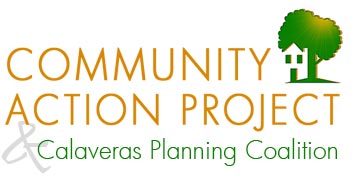project focused on sustainable land use planning.
Find out more about us >>
OPEN ACCESS TO WELL WATER DATA
By the Editorial Board /Sac Bee/ March 25, 2015
In time of drought, when leaders tell us every drop of water counts, Californians ought to be able to count every drop. The concept seems so simple, but because the issue is water, it’s not.
For the third year running, Sen. Fran Pavley, D-Agoura Hills, is pushing legislation to provide public access to otherwise confidential reports about groundwater wells.
Her Senate Bill 20, which cleared its first committee Tuesday, clearly warrants approval by the full Legislature.
The bill would alter decades-old practices that lie at the confluence of perceived private property rights and scarce water, and so lobbyists representing agriculture oppose it.
Under a law that dates to Gov. Earl Warren’s tenure in 1951, drillers must provide information about wells to the California Department of Water Resources. But the law denies public access to what are known as well logs.
Information in the logs is considered proprietary, part of well drillers’ stock in trade. Whatever competitive reasons might have existed in 1951 are far outweighed today by the need to understand the straits in which California finds itself.
A report by the Senate Natural Resources Committee staff notes that well logs show the location of wells, the depth, and the types of soils at each elevation.
Academics and consultants could use the information to draw aquifer maps, identify the best places to store water underground, and avoid drilling into plumes of polluted water, as reported by the Center for Investigative Reporting. Farmers might benefit because drillers could use logs to determine how deep they must drill, and what areas to avoid.
But opponents of public access to the information include many heavyweights of California agriculture : the Western Growers Association, the California Farm Bureau Federation, the California League of Food Processors, the California Chamber of Commerce, and the Valley Ag Water Coalition, which represents many San Joaquin water delivery agencies.
Reflexive opposition by farm groups is unfortunate. As urban water users face restrictions, if not rationing, they could turn on farmers whose crops use 80 percent of the water consumed by humans in California.
Farmers depend on deep wells as state and federal authorities cut Sacramento River deliveries. Extensive groundwater withdrawal has caused areas of the Central Valley ground to sink as much as 30 feet.
In the committee hearing Tuesday, opponents offered numerous reasons to vote against Pavley’s bill. None made sense. Information from the well logs could become fodder for lawsuits, they said. Terrorists could use the logs to locate wells and poison the water, and thieves could use the logs to find the locations of valuable pumping equipment.
Pavley’s bill offers a simple solution. Before gaining access to the logs, people would need to provide their names, addresses and reasons for wanting to look at the logs. There also would be a fee to cover administrative costs.
It’s hard to imagine the criminal element gaining access to well logs by providing their names and addresses, a dead giveaway. Besides, well log information is public in 10 other Western states, and urban water agencies in California disclose details about their wells, without calamitous effect.
Californians ought to be praying for rain. But the drought is forcing lawmakers and the public to focus on antiquated notions about water, including one that might have made sense 64 years ago when there were 10 million Californians, but no longer does.

